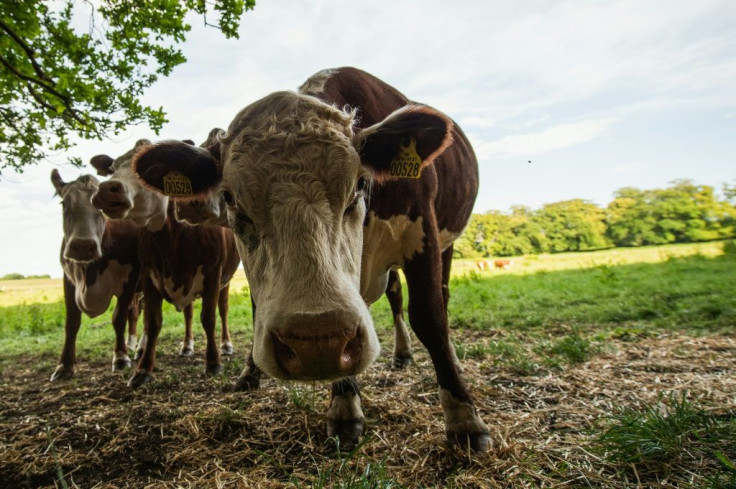Mad Cow Disease: Brazil Logs 2 'Atypical' Cases, Authorities Say
KEY POINTS
- Authorities in Brazil clarified there is "no risk" to animal or human health
- The disease comes from an "unusual transmissible agent" known as a prion
- This transmissible agent is still "not that well-understood"
Brazil has logged two "atypical" cases of mad cow disease. The country has since suspended its beef exports to China.
Two cases of bovine spongiform encephalopathy (BSE), commonly known as mad cow disease, were detected during health inspections in aged cattle, Brazil's Agriculture Ministry said Saturday as per AFP. The cases were said to be "atypical" as they occurred "spontaneously and sporadically, unrelated to the ingestion of contaminated food," the ministry noted.
"Brazil has never recorded a classic case of BSE," AFP quoted the ministry as saying.
Although the ministry clarified there is "no risk to human or animal health," authorities have halted beef exports to China effective immediately. Brazil is the world's largest beef exporter, Aljazeera noted, and China is its "biggest customer."
China also made a similar move of suspending beef exports when another atypical case was discovered in Brazil in 2019 and in 2020 when another such case was also detected in a 14-year-old cow in Ireland.
What Is BSE?
It is a progressive neurological disorder in cattle that comes from an "unusual transmissible agent" known as a prion, the Centers for Disease Control and Prevention (CDC) noted. So far, however, this agent is still not that well-understood.
"Currently, the most accepted theory is that the agent is a modified form of a normal protein known as prion protein," the CDC explained. "For reasons that are not yet understood, the normal prion protein changes into a pathogenic (harmful) form that then damages the central nervous system of cattle."
Cows infected with BSE typically display symptoms such as a lack of coordination and difficulty getting up. They may also act rather nervous or violent, Agriland reported, noting this is where the more common term "mad cow disease" originated from.
It is believed that the first infections in cows happened during the 1970s and they came from having fed cattle with a meat-and-bone meal that had BSE-infected products. There is also "strong" evidence that the agent responsible for BSE is also the same one behind the new human prion disease first detected in the U.K. in 1996, variant Creutzfeldt-Jakob Disease (vCJD), which AFP noted to be passed on by consuming infected beef.
The CDC clarified vCJD is different from classic CJD, which is often simply called CJD. "It has different clinical and pathologic characteristics from classic CJD," the CDC said. "Both disorders are invariably fatal brain diseases with unusually long incubation periods measured in years, and are caused by an unconventional transmissible agent called a prion."

© Copyright IBTimes 2025. All rights reserved.






















